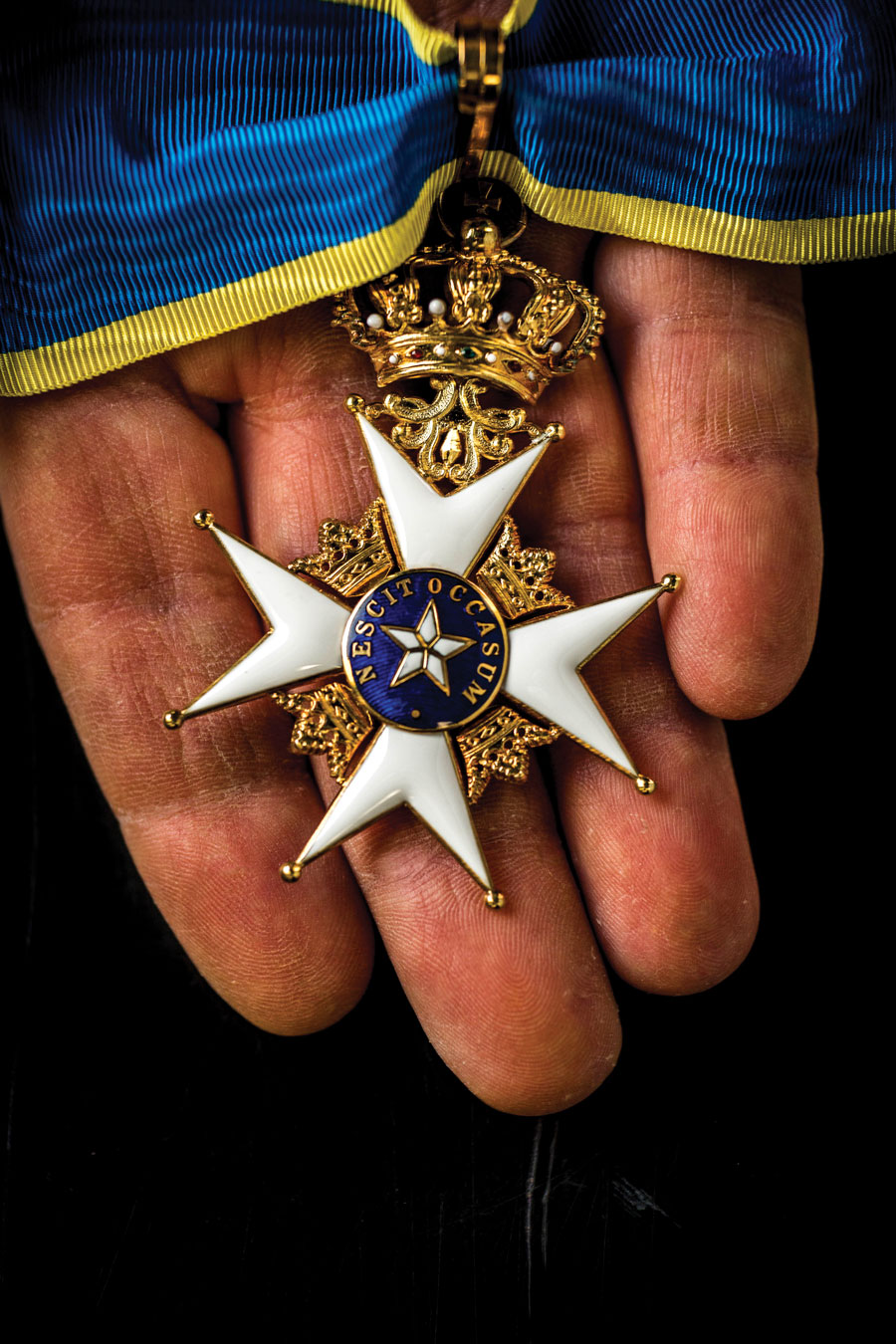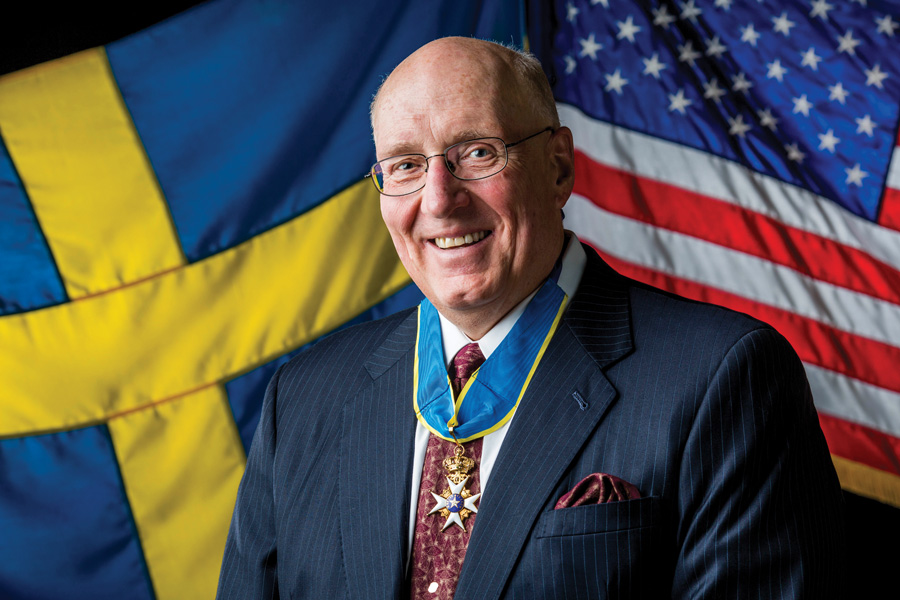

t didn’t matter that attorney Bradley Olson ’94JD, partner in Barnes & Thornburg LLP, had been knighted by the King of Sweden and awarded the chivalric rank of Commander — when you’re arguing a case in front of the U.S. Court of Appeals for the Federal Circuit, you’re just another lawyer.
Olson, an expert in patent law and intellectual property management, was representing an optical glass fiber manufacturer that had been sued by a competitor in the International Trade Commission for patent infringement. The case, which was argued in December 2019, was worth millions of dollars. Ultimately, the court ruled in Olson’s favor.
“You’re close enough to just about reach out and touch one another,” Olson says, recalling the courtroom scene while relaxing for a moment in his Washington, D.C., office. “It’s just three judges asking me all kinds of questions. And I had to be fast with answers, because the judges don’t care if they’re making me look bad.”
The going was tough, but the good-natured Olson didn’t crack a sweat — he has extensive experience dealing with many sides of business-related issues. And for almost 25 years, he has been a member of the Swedish-American Chamber of Commerce of Washington, D.C. (SACC-DC), a group that he at one point served as chairman and now sits on the board of directors. During his tenure with the group, he led trade missions to Sweden and helped negotiate trade agreements with Swedish-based companies like IKEA, Saab and Ericksson.
For his lengthy service to the organization, King Carl XVI Gustaf of Sweden knighted him and awarded him the Royal Order of the Northern Star, the highest civilian honor for non-Swedish citizens. The medal, with a proclamation signed by the King, was formally presented to him by the Swedish ambassador to the United States in 2016.
A gold-inlay Maltese Cross hung on a royal blue ribbon, the award is a neck order, meaning it is worn around the neck, as opposed to a breast- or sash-worn medal. Protocol dictates that Olson is only permitted to wear it during white tie — the most formal — events. But he is permitted to wear a special lapel pin with the design for “Commander” all other times.
Olson’s path to arguing legal matters before high courts took a circuitous route. He graduated with a B.A. in biology from Central Connecticut State University in 1980, obtained a master’s degree from the University of Connecticut five years later, then began working as a forensic scientist for the Connecticut State Police. Numerous crime scenes and testifying for the prosecution in criminal cases later, he decided to switch from examining corpses to practicing habeas corpus and enrolled at the UNH Franklin Pierce School of Law.
“I didn’t want to spend the rest of my life dealing with the evidence of homicide victims, many of which occurred in unhygenic circumstances,” Olson explains. “I was looking for a way to combine law with my science background and discovered patent law. And Franklin Pierce had a great reputation for patent law and intellectual property.”
After earning his law degree, Olson moved his family to Washington, D.C., and joined SACC-DC. He and his wife, Martha, a retired critical-care nurse who sings in a classical choral group that has performed before presidents George W. Bush and Bill Clinton, have been married for 37 years.
As for his recognition by Sweden, “I was totally surprised by this honor,” he says, then sighs. “I wished my Swedish immigrant grandparents were alive to see it. They spoke fluent Swedish, and today my family still celebrates Swedish traditions.”
Swedish kings have awarded more than 100 “Commander” level medals; notable recipients include actress Greta Garbo and Benjamin Franklin, America’s first Ambassador to Sweden. Interestingly, Franklin signed the first treaty the new U.S. ever signed — with Sweden.
While Olson is proud to join that esteemed list of recipients, he knows that winning multi-million-dollar cases is just as important. “To be a good attorney, you must often put your life on hold,” he says. “The client’s needs come first, and your life comes second.” And in the end, it’s all in a knight’s work.